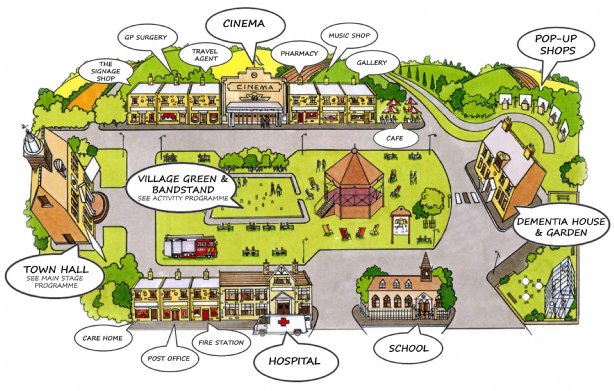assisted living
Hogewey “Dementia Village” in Holland
 With more and more individuals (and their loved ones) suffering from dementia in our rapidly aging population, it behooves us to come up with some creative and compassionate living alternatives that embrace them with respect, value, safety and opportunities to have fun.
With more and more individuals (and their loved ones) suffering from dementia in our rapidly aging population, it behooves us to come up with some creative and compassionate living alternatives that embrace them with respect, value, safety and opportunities to have fun.
The Dutch have created one such alternative pharmacom. What will we come up with here in the United States? And what will be affordable for the hordes of aging baby boomers who not only are getting old but also developing dementia? Time will tell! Meanwhile we can learn from other countries and cultures.

Medical Foster Homes – An Emerging Supportive Housing Choice for Older Veterans
 Medical Foster Homes – An Emerging Supportive Housing Choice for Older Veterans
Medical Foster Homes – An Emerging Supportive Housing Choice for Older Veterans
Housing Choices in Later Life
As our population ages, more and more living scenarios are surfacing for how to live out our lives safely with dignity, comfort and with as much control as we can maintain. Increasing numbers of older people remain in their own homes as long as they can in order to preserve their independence. The number of people living out their whole lifespans in the comfort of their homes has increased by 50% over the last two decades.
When living alone is no longer an option, elders often opt to move closer to adult children who can provide assistance and advocacy. Often, additional hourly home caregivers are brought in; at times, live-in roommates exchange services for rent. Full-time, live-in caregivers are another, albeit expensive, option.
“Aging in place” member-driven, non-profit, community-based organizations such as Marin Villages strive to provide the kinds of support that older people are looking for in order to continue to live in their own homes, apartments or condo’s.
Independent living retirement communities serve as well-known housing alternatives for older adults. Assisted living and skilled nursing facilities come into the picture as health declines and care needs increase.
Smaller “board and care” homes are another alternative – with usually 2-6 residents. Board and care homes can be comfortable and safe environments, particularly for those older adults who do not need the full medical services available in assisted and skilled nursing facilities.
A Special Alternative for Veterans
Recently I found out about an interesting project that the Veteran’s Administration has been spearheading for several years called “Medical Foster Homes”. These homes provide an alternative to nursing homes for veterans who are unable to live safely and independently at home or lack a strong family caregiver. The homes are open to vets of all ages but the average age is 70.
Initiated by VA social workers in Little Rock, Arkansas, the program currently serves about 600 veterans and has cared for 1,500 since it began. The program has grown to operation in 36 states and is scheduled to expand to 10 more states soon. Program administrators have reported that 30 percent of veterans who would qualify for VA-paid nursing homes choose instead to live in – and to pay out of pocket for – medical foster homes. This is evidence, they state, that the vets prefer a home setting.
Living in a medical foster home is paid for by veterans from their VA and social security benefits – the monthly costs range from about $1400 to $2500 depending on the applicant’s income and the level of care he/she needs. It should be noted that the VA rigorously screens and monitors the Medical Foster Care homes – only about 1 in 10-15 applicants is accepted.
For more information, read the full New York Times article For Veterans, an Alternative to the Nursing Home or go to the Department of Veterans Affairs Medical Foster Home website. You can also call the Marin County Veterans Service Office at (415)473-6193 and speak with Marin County Veterans Service Officer Sean Stephens. Sean’s email address is veterans@marincounty.org.
Won’t it be interesting if the VA’s valuable knowledge obtained as they continue to grow this popular housing solution can be translated for the general, non-veteran population of older adults? Stay tuned!
Older Adults in Mill Valley
As Mill Valley Commissioner on the Marin County Commission on Aging, in October 2009 I presented my annual report to the Mayor and City Council members on the status for baby boomers and older adults living in Mill Valley. Here is a link to my report presentation notes – I hope you will find it helpful to give you an idea of some of the opportunities and challenges for older people in Mill Valley as of autumn, 2009. Some things have changed – statistics, numbers, contact information perhaps, so do note that this report is from 2009. Older Adults in Mill Valley
“20 Lies Told By Nursing Homes”
Eric Carlson is Directing Attorney for the National Senior Citizens Law Center (NSCLC). He has specialized in long-term care since 1990 and is one of the country’s leading consumer experts on skilled nursing and assisted living facilities.
Mr. Carlson has written many articles on issues related to long term care and advocacy. I came across this one recently and think it is very helpful for consumers. Note: It has been rewritten and published recently as “20 Common Nursing Home Problems and How to Resolve Them” for purchase from this page at the NSCLC .
———————————-
Part of the 20 Lies article can be read at no cost in a Powerpoint format.
The basics of the 20 Lies articles are listed below. See Mr. Carlson’s complete article for the details.
1. MediCal does not pay for the services you want.
2. The nursing staff will determine the care that your receive.
3. We don’t have enough staff. You must wake up every mroning at six.
4. We don’t have enough staff. You should hire a private-duty aide.
5. If we don’t tie your father into his chair, he may fall or wander away.
6. Your mother needs more medication to make her more manageable.
7. We must insert a feeding tube; your father is eating too slowly.
8. Your children can only visit you during visiting hours.
9. We can’t admit your mom unless you become “Responsible Party”.
10. Please sign this arbitration agreement; it’s no big deal.
11. Because of your limited needs, you can’t get Medicare reimbursement.
12. We must discontinue therapy because you aren’t making progress.
13. We can’t give therapy. Medicare has expired and Medi-Cal doesn’t cover it.
14. You aren’t eligible for Medicare, so you must leave the Medicare bed.
15. We don’t have an available Medi-Cal bed for you.
16. We don’t have to readmit you from the hospital; your bed-hold has expired.
17. You must pay any amount set by the facility for extra charges.
18. We have no available space for resident or family meetings.
19. You must leave because you are a difficult resident.
20. You must leave because you are refusing treatment.